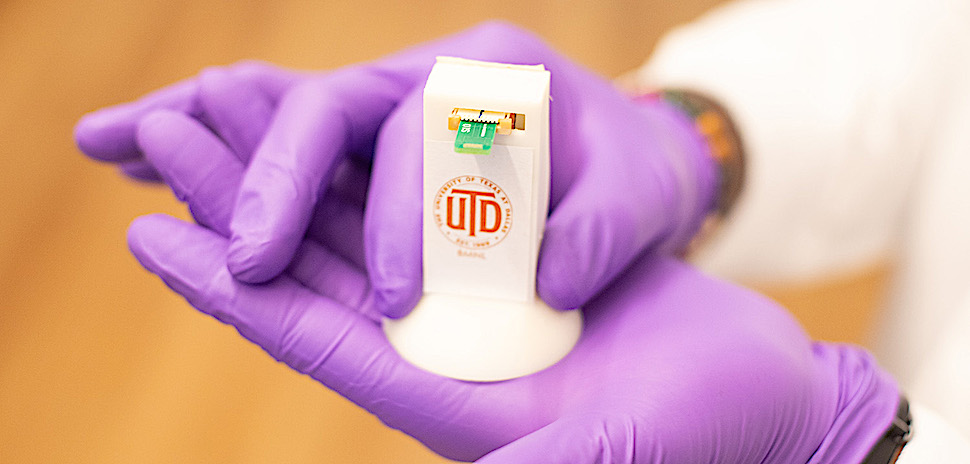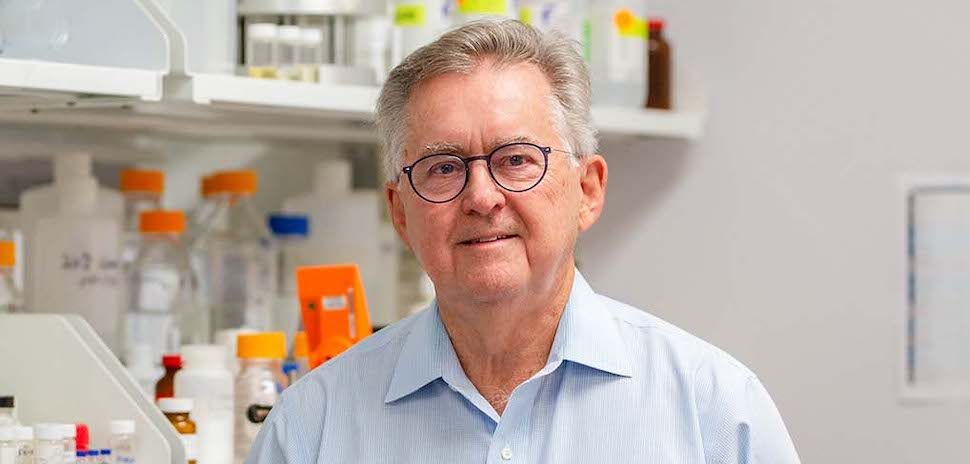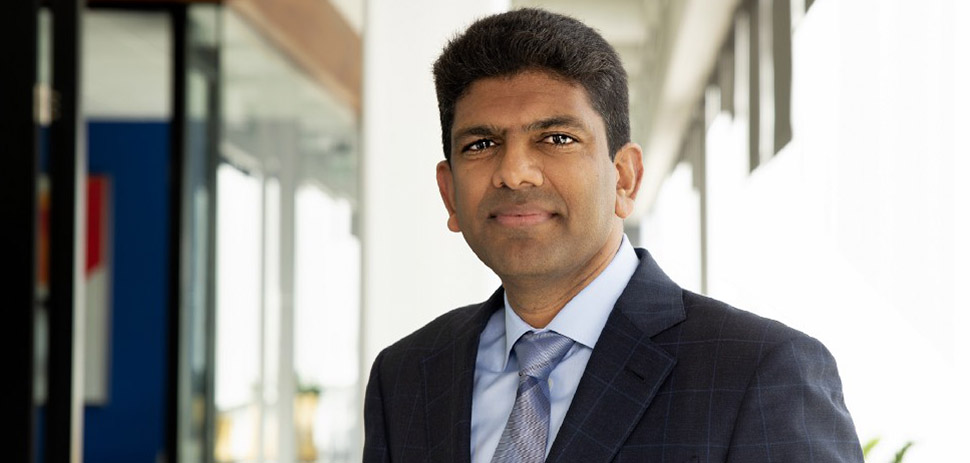
CannibiSenS, a handheld rapid saliva test for THC, was developed by researchers at UT Dallas. [Photo: UTD]
“This is very useful because you know that THC actually stays pretty long in your body, and so you want to understand how much the psychoactive effect is.”
Dr. Shalini Prasad
Professor and Department Head of Bioengineering
UT Dallas
.…on the CannibiSenS THC-levels hand-held rapid saliva test her team developed, via KRLD.

We told you last month about CannibiSenS, the hand-held rapid saliva test developed by Prasad and her team at UT Dallas. The device can measure THC levels with 94% accuracy, the team says. According to the researchers, the “electrochemical sensor” is more sensitive than over-the-counter tests, which typically can detect THC but don’t determine its concentration.
The device could potentially be used by law enforcement to test drivers during traffic stops. But it may also be useful for medical and recreational marijuana users to check their own THC levels, Prasad says.
You can hear her talk about the device in detail in her interview with NewsRadio 1080 KRLD.
For more of who said what about all things North Texas, check out Every Last Word.

Get on the list.
Dallas Innovates, every day.
Sign up to keep your eye on what’s new and next in Dallas-Fort Worth, every day.
R E A D N E X T
-
Called CannibiSenS, the device can distinguish between THC and CBD. Unlike over-the-counter tests that can detect THC but aren't able to determine its concentration, this device can measure THC levels with 94% accuracy, the UTD team says, reducing "false positive" tests. See who could potentially use the device—and why.
-
"This is the equivalent of having a wearable health sensor on your body that tells you in real-time what’s happening," Prasad said. "Think of it as a wearable for the soil."
-
UNT and Dallas-based communications tech company COMSovereign are partnering to develop and launch a new 5G edge-centric infrastructure test platform, funded in part by a grant from the North Central Texas Council of Governments. With the new program, UNT's Dr. Kamesh Namuduri says his team will "be able to expand our focus on wireless connectivity and research into Advanced Air Mobility technologies including UAVs, where UNT is already actively engaged with an expanding network of industry and government partners."
-
A holder of 34 patents, Sherry was a pioneer in designing molecular materials for use in medical imaging. His work on chemicals called macrocyclic ligands led to their use in carrying "a payload of metallic radiotherapeutic compounds that can kill cancer cells on contact, while the outside molecular structure can be designed to bind to a specific protein that ensures precise delivery to only diseased tissue," Amanda Siegfried writes in UT Dallas Magazine.
-
Coppell-based UWorld's new Digital SAT preparation course will prepare students for the new digital format of the SAT exam—which is being offered this year for international students and starting in 2024 for U.S. students. See what's different about the new SAT test—and how UWorld aims to prepare students for it.
![]()
![]()






























